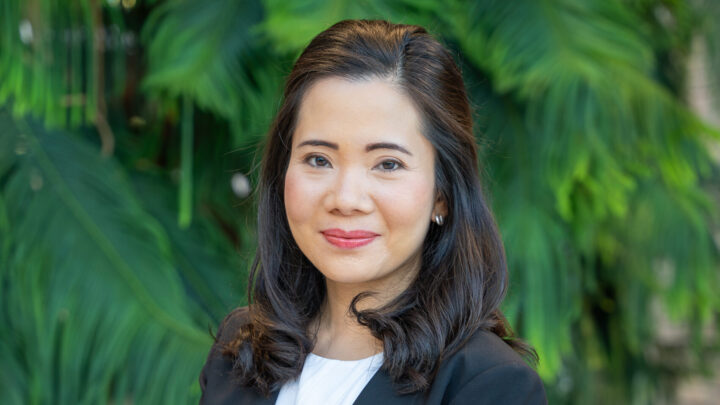A Message from our Global Health Lead
Welcome to the Department of Obstetrics & Gynecology (Ob/Gyn) Global Health Webpage.
McMaster University has a legacy of robust involvement in Global Health and Global Surgery endeavours. We are a globally recognized university with an explicit mission statement of “Impact, ambition, and transformation through excellence, inclusion, and community: advancing human and societal health and well-being.”[1] I attribute my current work in Global Health to the opportunities afforded by my time as a medical student and Ob/Gyn resident at McMaster. I am delighted that following completion of a Master’s of Global Surgical Care at the University of British Columbia, I now have the privilege of overseeing our Department’s Global Health portfolio.
One cannot discuss Global Health issues without thoughtful consideration of the field of Ob/Gyn. Our field is uniquely situated at the nexus of preventative and therapeutic care, medical and surgical therapy, and both emergency and disability-averting care. Moreover, Ob/Gyns are well-versed in the comprehensive life-course approach needed to carry the momentum forward from the 2015 Millennium Development Goals to the 2030 Sustainable Development Goals.[2]
The Lancet Commission on Global Surgery (LCoGS) estimates that 5 billion people lack access to safe and affordable surgical and anesthetic care and that the world will need an additional 1.27 million surgeons, anesthetists, and obstetricians (SAO) by 2030 to meet global needs for surgical care.[3] Surgical conditions are responsible for nearly one-third of the world’s burden of disease[4] and will cost the world economy $12.3 trillion US dollars between 2015 and 2030.[5] The largest scale-up of SAO providers will be needed in low- and middle-income countries. [6]
Ob/Gyn occupies a distinct position in Global Surgery. Collectively, we possess expertise in two of the three SAO areas. Moreover, Cesarean sections are one of the LCoGS’ Bellwether procedures, are the most ubiquitously performed surgery, are both life-saving and disability-averting, and were among the first and are the most commonly “task-shifted” procedure. They have also been shown to be one of the most cost-effective at only $15-380 USD per DALY (disability-adjusted life year) averted.[7]
With that said, I am excited to help increase the visibility of Ob/Gyn issues in Global Health & Global Surgery discourse at McMaster and beyond. My focus is to lead our Department’s work in Global Health & Global Surgery by cultivating sustainable partnerships in Ob/Gyn, facilitating discussion of Global Surgery Ethics, and championing capacity building and medical education efforts with a focus on health equity. On a more granular level, I am eager to mentor trainees of all levels in their nascent interest in Global Health & Global Surgery. As we know from the literature, exposure to Global Health & Global Surgery has been shown to improve cultural sensitivity, provide heightened awareness of social determinants of disease globally, and increase cultural awareness and competence.[8] Such traits are critical to all practitioners, regardless of their area of eventual practice.
[1] McMaster University. New vision statement for McMaster is “a unifying statement for our community”. [McMaster University website]. 2021. https://dailynews.mcmaster.ca/articles/new-vision-statement-for-mcmaster-is-a-unifying-statement-for-our-community/ Accessed July 20, 2023
[2] Langer A, Meleis A, Knaul FM, Atun R, Aran M, Arreola-Ornelas H, et al. Women and Health: the key for sustainable development. Lancet. 2015;386:1165-1210. https://dx.doi.org/10.1016/S0140-6736(15)60497-4
[3] Meara JG, Greenberg SL. The Lancet Commission on Global Surgery – Global Surgery 2030: Evidence and solutions for achieving health, welfare, and economic development. Surgery. 2015;157(5):75-78. https://doi.org/10.1016/j.ijoa.2015.09.006
[4] Shrime MG, Bickler SW, Alkire BC, Mock C. Global burden of surgical disease: an estimation from the provider perspective. Lancet Glob Health. 2015;27(3):S8-9. https://doi.org/10.1016/S2214-109X(14)70384-5
[5] Jumbam DT, Reddy CL, Roa L, Meara JG. How much does it cost to scale up surgical systems in low-income and middle-income countries? BMJ Global Health. 2019;4(4):e001779. https://doi.org/10.1136/bmjgh-2019-001779
[6] Daniels KM, Riesel JN, Meara JG. The scale-up of the surgical workforce. Lancet. 2015;285(Special Issue):S41. https://doi.org/10.1016/S0140-6736(15)60836-4
[7] Essential Surgery: Disease Control Priorities, Third Edition (Volume 1). Chapter 1. Pages 1-15. https://dcp-3.org/surgery
[8] Leow J, Kingham T, Casey K, Kushner A. Global Surgery: Thoughts on an emerging surgical subspecialty for students and residents. J Surg Educ. 2010;67:143-148. https://doi.org/10.1016/j.jsurg.2010.03.002

